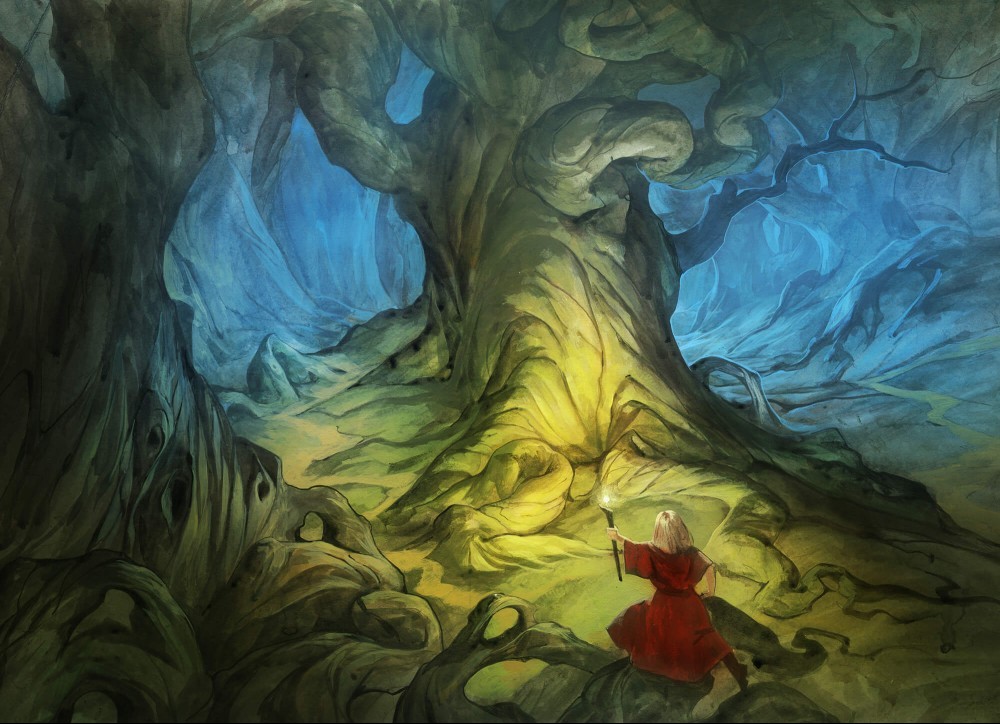This week, we start a 3 Part Series on The Steps of Being a Writer, by Australian writer, Thomas Gregory. I hope you enjoy the series!

In 1949, an American professor called Joseph Campbell published a book called “The Hero with a thousand faces”. Using contemporary literary theory, combined with Freudian psychology, the book examined the concept of “The Monomyth” or “Hero’s Journey”. In it, Campbell recognises that many of the great works of literature followed protagonists on the same path, from a quiet life at home to a grand journey from which they return changed. It was a groundbreaking piece of work. By the beginning of the twenty-first century, certain elements were found to be more important than others, and so it was eventually developed into 12 clear steps by Christopher Vogler in 2007.
Thinking about “The Hero’s Journey” is something all writers have done at some time or another. However, many of us do not realise that, in fact, we are on our own journey that can be described using the very template the describes the journeys of Frodo Baggins, Prometheus of Jesus Christ.
Step One: The Ordinary World
It might be you knew you wanted to be a writer at childhood. Many great writers excelled at English in school and attended universities with interests in journalism or literature. Others had occupations far from academia and were drawn by a specific tale they wanted to tell. While the specifics may be different to each of us, there was definitely, at some point, a “before the story began”.
For Eric Blair, “The Ordinary World” was as part of the Imperial Police in Burma. While he had been fortunate enough to attend Eton, Eric was an unexceptional student and, although he was taught French by Aldous Huxley and was known for having a linguistic talent, had little time for more learning. His mother had grown up in Burma and so he packed his bags and left. He stayed there, absorbing himself in the culture and life happily, until contracting Dengue Fever and, five years after arriving, returned home.
It was there that he decided to give into his childhood when he first imagined one day being a writer. Drawing on his experiences in Burma while creating new ones on the streets of London and Paris, he dreamed of one day writing a book. But still the realist, he became a teacher instead, and only got around to writing his book another two years later. However, “Down and Out in Paris and London” is now known as an incredible debut from the world-famous British Author George Orwell.
Step Two: The Call to Adventure
For many of us, the call is a slow one, a faint cry in the distance, becoming clearer over years as we give in to urges to write that book we had fantasised about or, at very least, write something. But for others, the call to adventure comes like an Owl dropping an envelope through a letterbox slot, unexpected and strange.
Despite having parents who taught literature, Haruki Murakami had no interest in becoming a writer. His passion was in drama and music, and was quite content running a Jazz Club in Kokubunji, Japan. But one day, sitting in the stands of a stadium, watching American Baseballer hit a double, he felt “a warm sensation” in his heart and knew he had a story to write. By the time he got home he had a plan in mind and for the next four months he would spend an hour each night typing it up. His first novel, “Hear the Wind Sing” was published a year later, in 1979.

Step Three: Refusal of the Call
Of course, not everyone is like Murakami, starting their book the same night they “got the call”. Many people who feel a story in their heart that could be told don’t ever end up writing. “I don’t have the time”, “It’s too much work”, “Playing computer games is more fun”. Until someone makes their story a priority in their life, it may sit for years, or even forever.
It could be why, for many authors, their first took so long to write while they later became quite prolific.
Step Four: Meeting with the Mentor
It is difficult to ignore the importance of having a good teacher when it comes to being a good writer. While writing can be an isolating experience (for good or for bad), many great authors took advantage of the times they got with those who had already existed the highs and lows of writing themselves. JD Salinger was able to discuss writing with Ernest Hemingway and Samuel Beckett’s formative years were spent in the company of James Joyce. As Harper Lee wrote “To Kill a Mockingbird”, she was fortunate enough to be able to turn to her childhood friend Truman Capote to seek advice.
Of course, not all of us are lucky enough to have personal contact with the greats of writing. What we do have, however, is the shared knowledge given freely. Whether it is thumbing through the pages of Stephen King’s “On Writing” or being a part of Margaret Atwood’s Masterclass, the authors of today have the advantage of being able to have many mentors from all around the world at our fingertips.
– by Thomas Gregory –
Well, that’s it for this week. I hope you enjoyed this part of this 3 part series. I’d love to hear your thoughts on the writer’s own hero journey; please leave me a comment below and I’ll get back to you as soon as I can.
And don’t forget to check back next week for Part 2!
Happy Writing!
Erica

Thanks for such a brilliant post, this is clearly a motivational post. I see writing as a difficult thing in my life, I really hate it. But this article has giving me reasons and solution to writing. I would love to follow this steps by steps to make my writing skills improve. I will stay around this blog to learn in some other article. Thanks for the insight, it’s highly resourceful.
Thanks, Adamuts. I’m glad you enjoyed the post. I find writing difficult sometimes too. It’s kind of a love-hate relationship lol. Thanks for reading!
Hi Erica.
I enjoyed reading your article 12 steps of being a writer: Part 1. I definitely have gone beyond the first step, which is the ordinary life. Where dreams are born and we are only trying to find ourselves.
I believe I am now at the stage where I’ve gotten the call. But like so many of us I am fighting it. Even with all the burning desire to write, it really I do think it’s too much work and going on social media to catch up with friends seems like more fun.